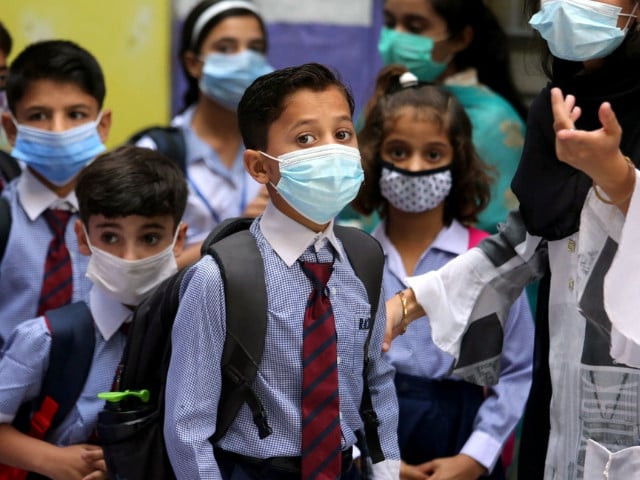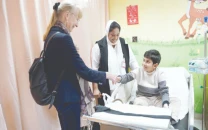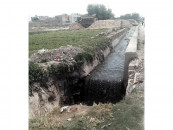Deworming campaign week starts in ICT
Programme to target 574,000 children across 2,000 institutions

A school-based deworming program is set to be conducted from today (Monday) till Saturday and will target 574,000 children within approximately 2,000 government and private schools as well as religious seminaries in the Islamabad Capital Territory (ICT).
All children enrolled in classes 1-10 and out-of-school children aged five-14 will be encouraged to access treatment at a nearby private and public school or seminary, read a press release issued by the planning ministry the other day.
Deworming is essential for a child's physical and cognitive growth and ensures resistance to other infections and improved school performance. It will significantly contribute towards the government's top health priorities which are reducing malnutrition and anaemia. The World Health Organisation (WHO) estimates that over 1.5 billion people are infected globally with intestinal worms, also known as soil-transmitted helminths, with over 835 million children in need of treatment. These infections result from poor sanitation and hygiene conditions and tend to have the highest prevalence in school-age children.
A national survey to assess intestinal worm infection in school-age children in 2016 found that approximately 17 million school-age children across Pakistan, including approximately 574,000 children in ICT, require annual deworming.
Accordingly, around 200,000 school-age children have been successfully dewormed in the previous two rounds of annual mass deworming in Islamabad in 2019 and 2020, a ministry spokesperson informed.
The school-based deworming programme in ICT is coordinated and led by the Ministry of Federal Education and Professional Training and implemented in partnership with the Ministry of National Health Services, Regulations and Coordination, Office of Chief Commission ICT and the Capital Development Authority.
The deworming is implemented at the school level by the teachers trained by the Federal Directorate of Education (FDE), Private Education Institution Regulatory Authority (PEIRA), Basic Education Community Schools (BECS), National Human Development Commission (NCHD), and seminary heads.
District Health Office in Islamabad is playing a key role in leveraging their Lady Health Workers (LHWs) to deworm hard-to-reach children such as those who are out of school. At the national level, strategic oversight is provided for Pakistan Deworming Initiative by the Ministry of Planning Development and Special Initiatives.
Published in The Express Tribune, August 30th, 2021.



















COMMENTS
Comments are moderated and generally will be posted if they are on-topic and not abusive.
For more information, please see our Comments FAQ